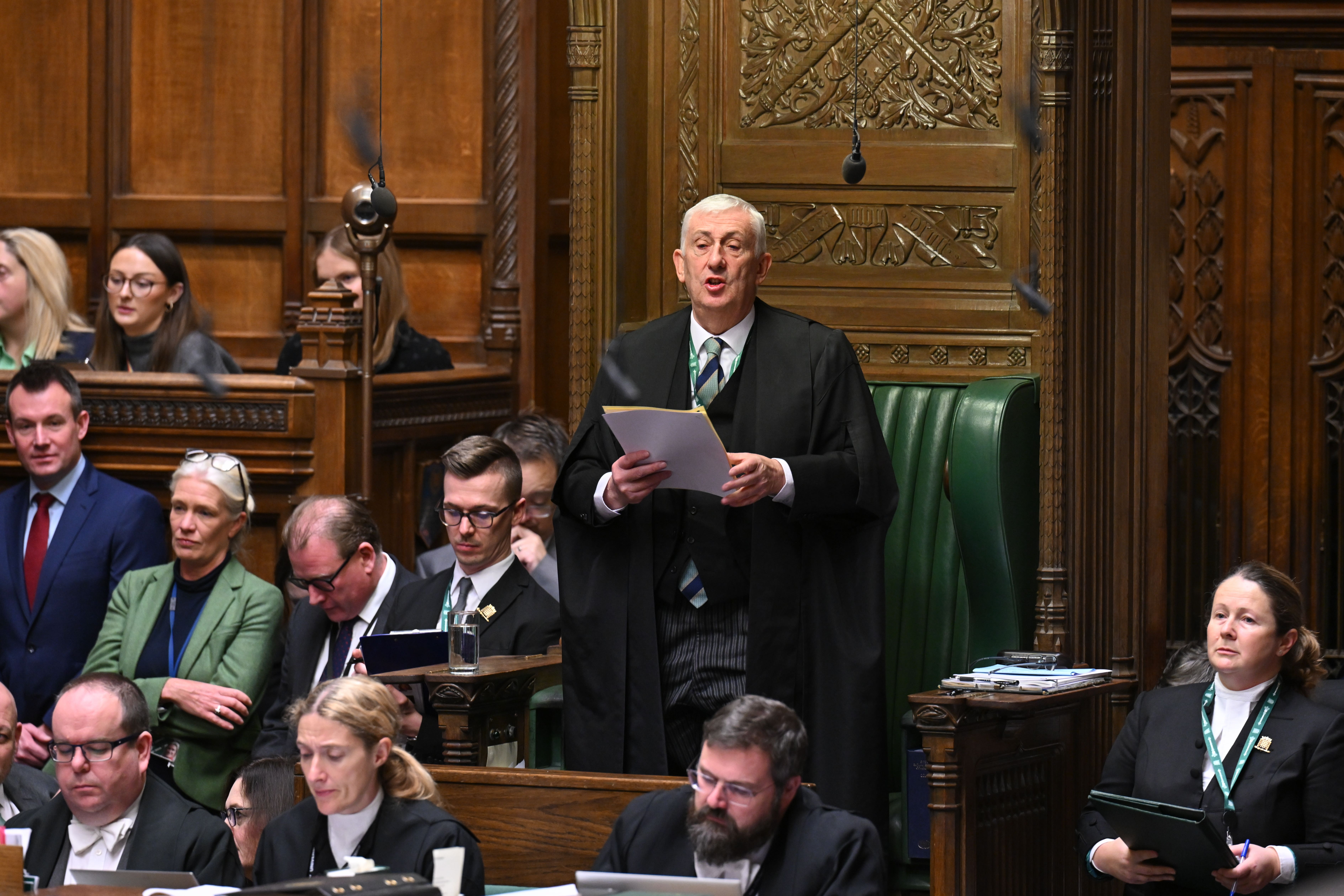Sir Lindsay Hoyle faces calls to resign as Speaker over Gaza vote decision
The Commons Speaker sparked uproar from the SNP and Conservatives after his decision to allow multiple Commons votes on the Israel-Hamas conflict.

Sir Lindsay Hoyle faced calls to resign and for his predecessor John Bercow to return after the Speaker took an exceptional decision to allow multiple Commons votes on the Israel-Hamas conflict.
The Commons Speaker sparked uproar on the SNP and Conservative benches after he announced he would select Labour’s bid to amend the SNP motion calling for an “immediate ceasefire” in Gaza and Israel.
It had been expected Sir Lindsay would select just the Government’s amendment seeking an “immediate humanitarian pause” to the Israel-Hamas conflict, which could pave the way for a more permanent stop in fighting.
I think it is important on this occasion that the House is able to consider the widest possible range of options
But instead, he decided that the Commons would first vote on Labour’s calls for an “immediate humanitarian ceasefire” before moving onto further votes on the SNP’s original motion, and then the Government’s proposals if either of the first two were to fail to garner enough support.
Sir Lindsay was warned by House of Commons Clerk Tom Goldsmith about the unprecedented nature of his decision ahead of the clash with MPs, with the senior official saying he felt “compelled to point out that long-established conventions are not being followed in this case”.
During a stormy Commons session where MPs repeatedly interrupted the Speaker, Sir Lindsay faced widespread heckling as he suggested the rules around Opposition-led debates “reflects an outdated approach” which restricted the “operations which can be put the House”.
Conservative former minister Sir Desmond Swayne responded by shouting “Bring back Bercow!”, referring to the former Commons speaker who was found to have bullied his staff following a parliamentary investigation.
Sir Lindsay, who was elected as a Labour MP before giving up party affiliation on his election as Speaker, replied: “If you want to, do it.”
The Speaker sought to justify his decision, claiming it would give MPs the “widest possible range” of options in the Gaza ceasefire debate because of its importance.
Sir Lindsay said: “This is a highly sensitive subject on which feelings are running high, in the House, in the nation, and throughout the world.
“I think it is important on this occasion that the House is able to consider the widest possible range of options.”
A Conservative MP could be heard to accuse Sir Lindsay of “moving the goalposts” as he told the Commons Labour’s amendment would be voted on first, followed by the SNP if that is rejected.
He added: “If that is not agreed to, then the House will have the opportunity to vote on the Government amendment.
“Proceeding this way will allow a vote to take place potentially on all proposals from each of the three main parties.”
The SNP shouted “Shame on you!” at the Speaker, while Tory party chairman Richard Holden could be seen shouting “shameful!” from the side lines of the chamber in response to Sir Lindsay.
Advice from the Commons Clerk Mr Goldsmith suggested that the way in which the Speaker had chosen to proceed may mean it is “possible that the House will not be able to vote on the SNP motion (nor on the Government’s alternative proposition)”.
The Commons most senior official acknowledged in a letter to Sir Lindsay that he was attempting to give the “widest choice of decisions on alternative propositions, on a subject of immense importance”.
But he added: “Nevertheless, I know that you understand why I feel compelled to point out that long-established conventions are not being followed in this case.”
Bookmark popover
Removed from bookmarks